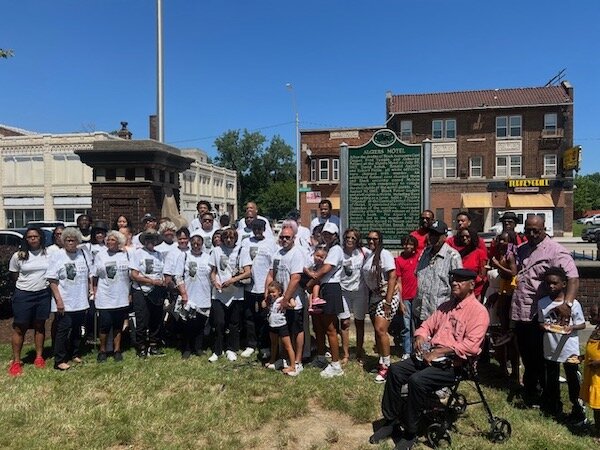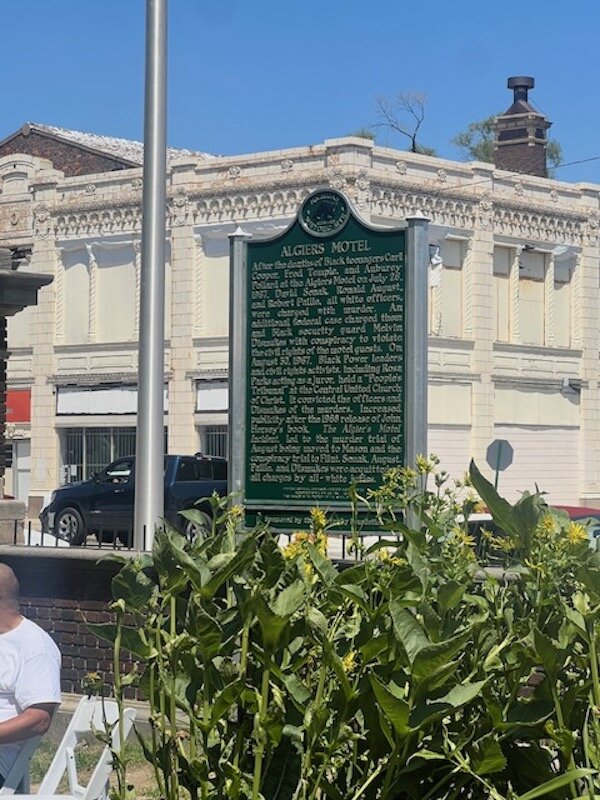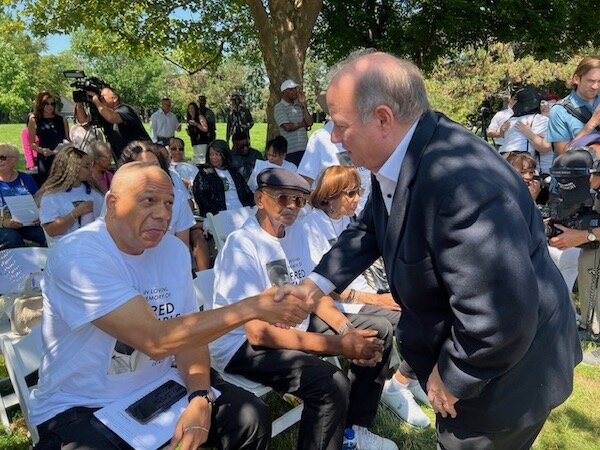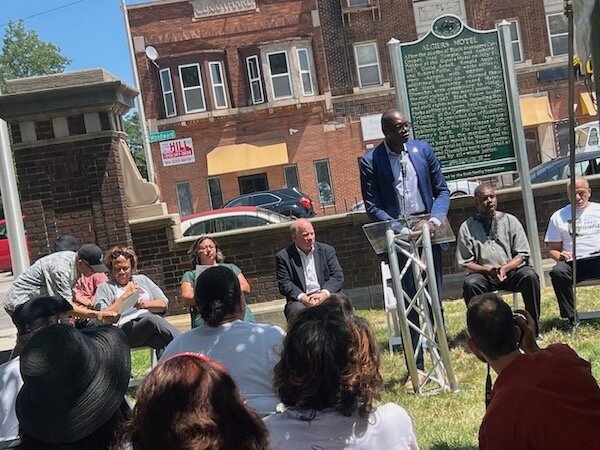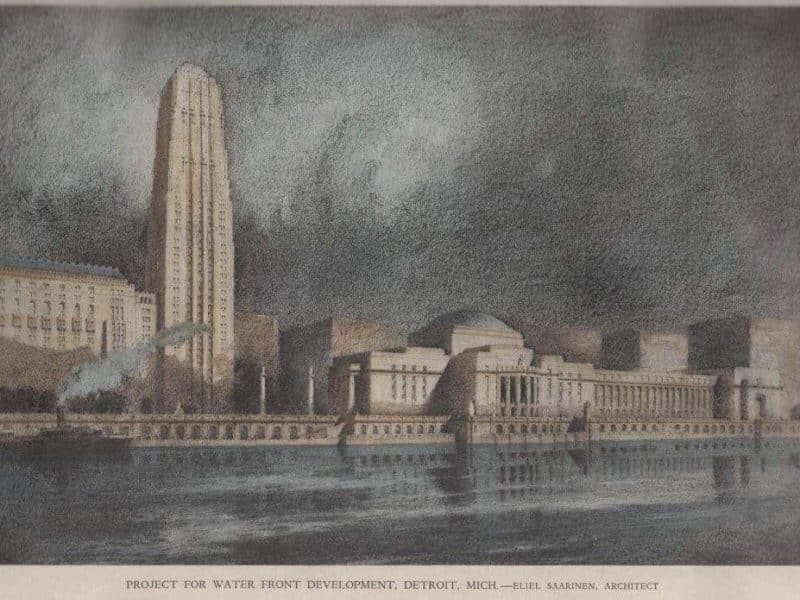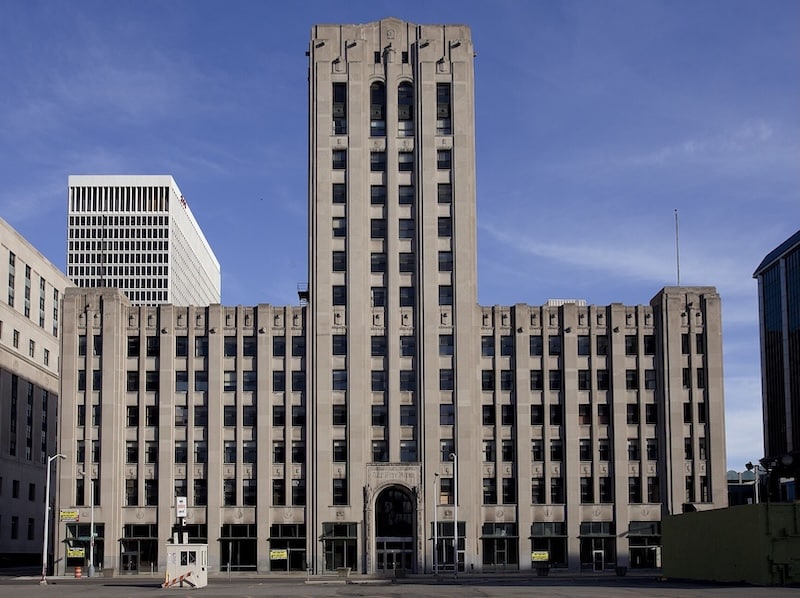Pain passed down: The Algiers Motel tragedy and its enduring impact
The unveiling of a historical marker 57 years after the Algiers Motel tragedy honors the victims and highlights the ongoing struggle against systemic racism.
Family members of the three teenagers slain in the Algiers Motel tragedy gathered in solemn remembrance on Woodward Avenue in Detroit’s Virginia Park neighborhood, at the site where the motel once stood. They witnessed what many called a “long-overdue honor”. Exactly 57 years after the brutal night that claimed the lives of Carl Cooper, Aubrey Pollard, and Fred Temple, a historical marker was unveiled, turning a painful memory into a powerful testament against systemic racism and police brutality.
The Algiers Motel tragedy occurred on the night of July 25, 1967, during the height of the Detroit rebellion — also known as the 12th Street Riot. It was one of the most brutal episodes in a five-day period of violence that shook Detroit to its core. The riots were ignited by long-standing racial tensions and were marked by multiple deaths, hundreds of injuries, and thousands of fires and arrests. The extensive involvement of local and state police, the National Guard, and even the Army underscored the severity of the conflict.
On that fateful night, Carl Cooper, 17, Aubrey Pollard, 19, and Fred Temple, 18, were among a group of friends staying at the Algiers Motel. They were subjected to a harrowing ordeal when Detroit police officers, responding to a false report of sniper fire, brutally interrogated and tortured the young men. The police, in their aggressive search, killed Cooper, Pollard, and Temple, leaving their bodies behind with no regard for justice or accountability.
The marker’s placement reflects the culmination of an eight-year effort led by former Wayne State University professor Danielle McGuire. Collaborating with a dedicated group of Detroit community members and the Michigan Historical Marker Commission, McGuire has worked tirelessly to bring this marker to fruition.
“The past is unchangeable, but by telling the truth about history – even hard truths – we can help forge a future where this kind of violence is not repeated,” McGuire said.
The event marking the installation of the historical marker was attended by notable figures including Michigan’s Lt. Gov. Garlin Gilchrist II and Detroit’s Mayor Mike Duggan. The presence of survivors and relatives of the slain young men underscored the personal and generational trauma that continues to reverberate. The pain etched into the memories of those who lived through that night, and those who lost loved ones, is a poignant reminder of the work still needed to heal and unify a racially divided America.
Gilchrist in his remarks reflected on the significance of the moment: “Our strongest seeds comes from blood-soaked soil.” He emphasized that the marker can serve as a starting point for future generations, fostering conversations that will positively shape history. “The marker is a reminder that we still have work to do,” he said. “We build progress person by person, connection by connection, and conversation by conversation.”
The emotional weight of the occasion was palpable, with survivors and relatives of the slain young men present. Lee Forsythe, a close friend of Carl Cooper, recounted his traumatic experience that night. “That’s where my best friend died,” Forsythe said, pointing to the site where the Algiers Motel once stood. “That one day changed my life. It’s been 57 years, and not a single day goes by that I don’t think about my best friend. I saw him take his last breath.”
Aubrey Pollard’s sister, Thelma Pollard, dressed in red to symbolize the blood shed that fateful night, shared her enduring grief and the impact on her family: “My dad had to identify Aubrey, and from that moment on, he changed. My mother was diagnosed with early-onset Alzheimer’s at 49 years old because she was so distraught over losing her child.” She explained that the death fractured the family, leading their father to quit his job and move to Texas, while their mother hopelessly followed the case, attending court every day.
Fred Temple’s family, wearing T-shirts with his face on the front, embraced each other during the ceremony and offered comforting words to the families and survivors. Fred Temple’s nephew, Tyrone Temple, prayed over the park and urged everyone to continue working to bridge societal gaps caused by differences, to help prevent race wars and retaliations. Temple noted that although his father was deeply hurt by the passing of his younger brother Fred, he was not raised to harbor hate. His hope is that the marker sheds light on the truth and helps spread the message of unity.
The Algiers Motel tragedy’s impact extends beyond historical reflection. It serves as a stark reminder of the systemic issues that persist in contemporary society. The brutal events of 1967 are mirrored in ongoing conversations about police violence and racial injustice today. The historical marker not only acknowledges the past but also serves as a call to action for continued advocacy and reform.
The legacy of Carl Cooper, Aubrey Pollard, and Fred Temple is a poignant reminder of the need for vigilance in the fight against racism. The marker stands as a beacon for those who continue to seek justice and equality, honoring the lives lost while urging society to confront its ongoing challenges.
In his address, Mayor Mike Duggan emphasized Detroit’s commitment to standing up to injustice and shining a light on truth while ensuring safety. He noted that during the George Floyd protests in the summer of 2020, the city remained free of fires and looting. He stated, “This is what happens when you face your history, learn from it, and bend the arc of history toward justice.”
